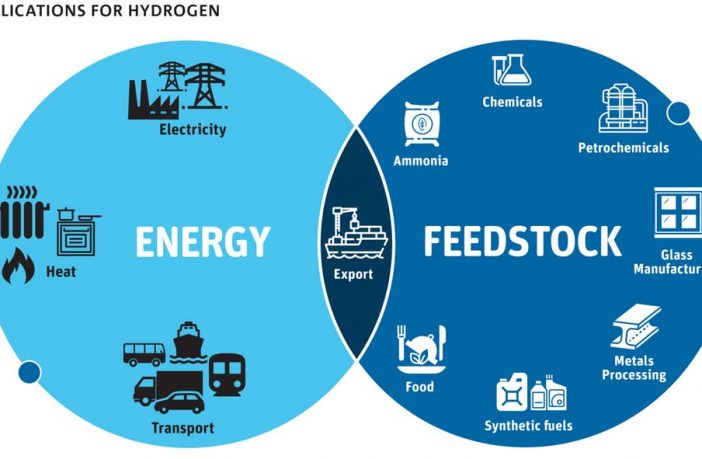- At the Africa Energy Indaba this week, South Africa’s Minister of Energy, Mr Jeff Radebe curve balled the local energy sector by announcing that hydrogen technology will be explored in favour of current big battery technologies.
- Hydrogen can provide power for multiple built environment applications including transport.
- The only by-product at the point of use is water.
“South Africa’s specific focus is more on the hydrogen economy rather than battery storage technology, and the progress achieved through this effort is epitomized by the hydrogen initiative (or Hy-Sa) based at the University of the Western Cape. This is a collaborative effort between South African and international research agencies, industry and government. Amongst the Hy-Sa programmes is the development of hydrogen and Fuel Cell systems, prototype development, technology validation and system integration”. The Minister announced.
He added that “We see the development of very sophisticated energy technologies, like hydrogen economy, as potential game changers in the current ecosystem for access to energy and for African development”.
The model is not new. Japan will use hydrogen technology at the 2020 Olympics and Para-Olympics to showcase its transition to a hydrogen-powered society. The Tokyo Metropolitan Government has earmarked US 350 million in a special fund to subsidise hydrogen fuel cell introduction. Buildings, buses and cars will be hydrogen-powered in the Olympic village.
Earlier this month, The Dubai Supreme Council of Energy, the 2020 Dubai Higher Committee and the Dubai Electricity and Water Authority broke ground earlier this month on a solar power hydrogen electrolysis facility located in the Mohammed Bin Rashid Al Maktoum Solar Park. The hydrogen produced at the facility will be stored and deployed for re-electrification, transportation and other uses.
No doubt the South African Energy Minister was looking into the distant future. Hydrogen to power technology is still in its infancy and it is expensive because it is difficult to generate, handle and store. At the moment the hydrogen pipeline infrastructure is more expensive than electric transmission and distribution lines.
Studies have however found that in the long term, hydrogen will be much more cost effective energy carrier than coal and synthetic fossil fuels, as well as being the environmentally most compatible fuel. The only by-product at the point of use is water. When produced from renewable energy sources, it offers the cleanest and most environmentally friendly technology of all the technologies that are available.
Author: Bryan Groenendaal















